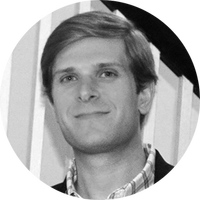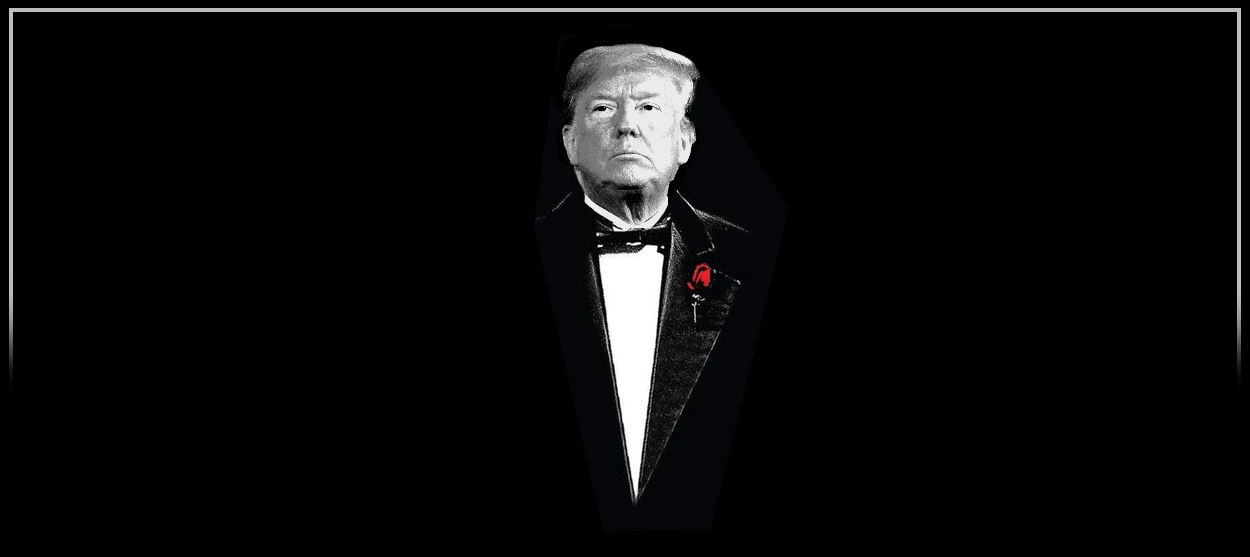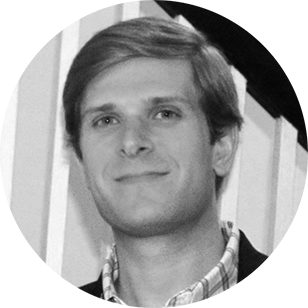The Don seizes the Justice Department
Trump is doing to the judicial system what he did to the Republican Party


A free daily email with the biggest news stories of the day – and the best features from TheWeek.com
You are now subscribed
Your newsletter sign-up was successful
The closer you get to President Trump, the closer you get to prison.
Roger Stone, the president's longtime friend and former campaign adviser, is living proof. On Monday, the Department of Justice recommended that he be sentenced to seven to nine years in prison for crimes he committed relating to Robert Mueller's investigation of Russian interference in the 2016 election. That night, at 1:48 a.m., our law-and-order president tweeted, "This is a horrible and very unfair situation. The real crimes were on the other side, as nothing happens to them. Cannot allow this miscarriage of justice!"
The next day, in a total coincidence, the Department of Justice changed its mind and said that Stone deserved "far less" than the previously recommended sentence, prompting four prosecutors to withdraw from the case and one to resign in protest. Hours later, Trump tweeted, "All starting to unravel with the ridiculous nine year sentence recommendation!" If there's one thing we know that Trump hates, it's long sentences.
The Week
Escape your echo chamber. Get the facts behind the news, plus analysis from multiple perspectives.

Sign up for The Week's Free Newsletters
From our morning news briefing to a weekly Good News Newsletter, get the best of The Week delivered directly to your inbox.
From our morning news briefing to a weekly Good News Newsletter, get the best of The Week delivered directly to your inbox.
On Twitter and to reporters, Trump berated the prosecutors, a juror, and the judge presiding over Stone’s case. More ominously, he said he has the "absolute right" to tell the Justice Department what to do, but claimed he "didn't speak" to anyone there about Stone. He didn't have to speak. He tweeted instead.
On the same day he mourned Stone's imprisonment, Trump suggested that Lt. Col. Alexander Vindman be disciplined for testifying truthfully about his phone call with Ukrainian President Volodymyr Zelensky. The president wants to penalize non-perjury and decriminalize perjury, punishing truths and rewarding lies made on his behalf.
After denying that he told the Department of Justice what to do about Stone's case, Trump tweeted congratulations to "Attorney General Bill Barr for taking charge of a case that was totally out of control and perhaps should not have even been brought." He admitted that the Department of Justice was his political operation. Trump is doing to the judicial system what he did to the Republican Party: ethic cleansing.
Early in Trump's presidency, Republicans blamed his misconduct on inexperience. After Trump told FBI Director James Comey to go easy on Michael Flynn, then-House Speaker Paul Ryan said, "The president's new at this. He's new to government. So he probably wasn't steeped in the long-running protocols that establish the relationships between DOJ, FBI, and White Houses. He's just new to this."
A free daily email with the biggest news stories of the day – and the best features from TheWeek.com
He's no longer new to making corrupt decisions, and neither are Republicans new to making excuses for him. Prior to his acquittal in the Senate, Republicans insisted he had learned his lesson. Indeed he had. Trump learned he can do whatever he wants and not be held accountable. He learned he cannot abuse his power because his power is, in effect, unlimited. And he learned not to conceal his wrongdoing. When committing high crimes and misdemeanors, it's better to commit them in public than in secret. That way, there will be no annoying investigations to stonewall.
Trump is indifferent to the quotidian procedures of government — he doesn't read his intelligence briefings, or anything else — but he's keenly interested in the criminal justice system, which is keenly interested in him.
In November 2017, Trump said "the saddest thing" for him as president was that "I am not supposed to be involved with the Justice Department. I am not supposed to be involved with the FBI. I'm not supposed to be doing the kind of things that I would love to be doing. And I'm very frustrated by it."
The next month, Trump told The New York Times, "I have absolute right to do what I want to do with the Justice Department." The role of the attorney general, he said, was to serve the president, by shielding him from the legal consequences of his actions. "[Eric] Holder protected the president," Trump said. "And I have great respect for that."
In many cases, what Trump wants is what the law forbids, which is why he wants control over its enforcement, which the law forbids. Trump's attitude toward the law is expressed by Patrick Swayze's character in the movie Point Break: "Why be a servant to the law when you can be its master?"
Trump is less interested in punishing his opponents for fabricated crimes than he is in protecting himself, his family, and his associates from the consequences of their real crimes. But to do the latter, he must do the former. Protection requires deflection. Trump wants to create the illusion that corruption is rampant so that we will ignore and excuse his actual corruption. If "everybody does it," then it's unremarkable when Trump does it.
Even when there are real crimes on the other side, Trump sympathizes with the criminals. After former Gov. Rod Blagojevich (D-Ill.) was sentenced to 14 years in prison for corruption, Trump said, "He was treated unbelievably unfairly" and mused about commuting his sentence.
Trump practices the golden rule with rule breakers. He treats criminals the way he wants to be treated, and he treats non-criminals the way he deserves to be treated.
Editor's note: A previous version of this article misstated the stage of Stone's trial. It's been fixed. We regret the error.
Want more essential commentary and analysis like this delivered straight to your inbox? Sign up for The Week's "Today's best articles" newsletter here.
Windsor Mann is the editor of The Quotable Hitchens: From Alcohol to Zionism.
-
 The environmental cost of GLP-1s
The environmental cost of GLP-1sThe explainer Producing the drugs is a dirty process
-
 Greenland’s capital becomes ground zero for the country’s diplomatic straits
Greenland’s capital becomes ground zero for the country’s diplomatic straitsIN THE SPOTLIGHT A flurry of new consular activity in Nuuk shows how important Greenland has become to Europeans’ anxiety about American imperialism
-
 ‘This is something that happens all too often’
‘This is something that happens all too often’Instant Opinion Opinion, comment and editorials of the day
-
 The billionaires’ wealth tax: a catastrophe for California?
The billionaires’ wealth tax: a catastrophe for California?Talking Point Peter Thiel and Larry Page preparing to change state residency
-
 Bari Weiss’ ‘60 Minutes’ scandal is about more than one report
Bari Weiss’ ‘60 Minutes’ scandal is about more than one reportIN THE SPOTLIGHT By blocking an approved segment on a controversial prison holding US deportees in El Salvador, the editor-in-chief of CBS News has become the main story
-
 Has Zohran Mamdani shown the Democrats how to win again?
Has Zohran Mamdani shown the Democrats how to win again?Today’s Big Question New York City mayoral election touted as victory for left-wing populists but moderate centrist wins elsewhere present more complex path for Democratic Party
-
 Millions turn out for anti-Trump ‘No Kings’ rallies
Millions turn out for anti-Trump ‘No Kings’ ralliesSpeed Read An estimated 7 million people participated, 2 million more than at the first ‘No Kings’ protest in June
-
 Ghislaine Maxwell: angling for a Trump pardon
Ghislaine Maxwell: angling for a Trump pardonTalking Point Convicted sex trafficker's testimony could shed new light on president's links to Jeffrey Epstein
-
 The last words and final moments of 40 presidents
The last words and final moments of 40 presidentsThe Explainer Some are eloquent quotes worthy of the holders of the highest office in the nation, and others... aren't
-
 The JFK files: the truth at last?
The JFK files: the truth at last?In The Spotlight More than 64,000 previously classified documents relating the 1963 assassination of John F. Kennedy have been released by the Trump administration
-
 'Seriously, not literally': how should the world take Donald Trump?
'Seriously, not literally': how should the world take Donald Trump?Today's big question White House rhetoric and reality look likely to become increasingly blurred
